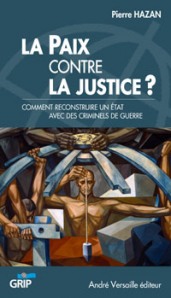Éthique, défense, sécurité et agents artificiels autonomes
Jean-Gabriel Ganascia (Paris 6, Pierre et Marie Curie)
Les agents artificiels autonomes prennent une part de plus en plus grande dans la vie quotidienne, que ce soit dans le monde physique, avec la robotique manufacturière, la robotique de service ou les drones, ou dans le monde virtuel, avec les « bots », les « malwares » (maliciels en français), etc. S’ils procurent puissance et confort, ces agents sont aussi source de nouvelles vulnérabilités. Il n’y a donc rien d’étonnant à ce qu’ils acquièrent de plus en plus d’importance dans le monde de la défense et de la sécurité. Après avoir rapidement passé en revue les applications militaires et policières actuelles de ces agents, nous verrons en quoi on peut évoquer des questions d’ordre éthique à propos de leur comportement. Nous montrerons ensuite comment approcher la programmation de ces agents en s’inspirant des cadres conceptuels posés par certaines approches philosophiques de l’éthique. Ce faisant, il se trouve que la notion de conflit, centrale pour l’éthique, provoque des incohérences logiques que doivent surmonter les programmes d’intelligence artificiel qui supervisent ces agents. Cela conduit à l’introduction de formalismes de représentation non monotones que l’on évoquera. Nous montrerons ensuite, comment ces modélisations ont pu être mises à profit par des roboticiens comme Ron Arkins pour légitimer la réalisation de « robots soldats » qui se substitueraient aux hommes dans les théâtres d’opérations. Nous conclurons en indiquant les limitations intrinsèques de ces approches et en proposant d’autres perspectives qui précisent la part des agents artificiels dans la prise de décision.
Discutantes : Amélie Ferey, Marine Guillaume
Jeudi 24 Avril, 17.00-19.00
Salle du Conseil, Sciences Po, 13, rue de l’Université – 5ème étage
